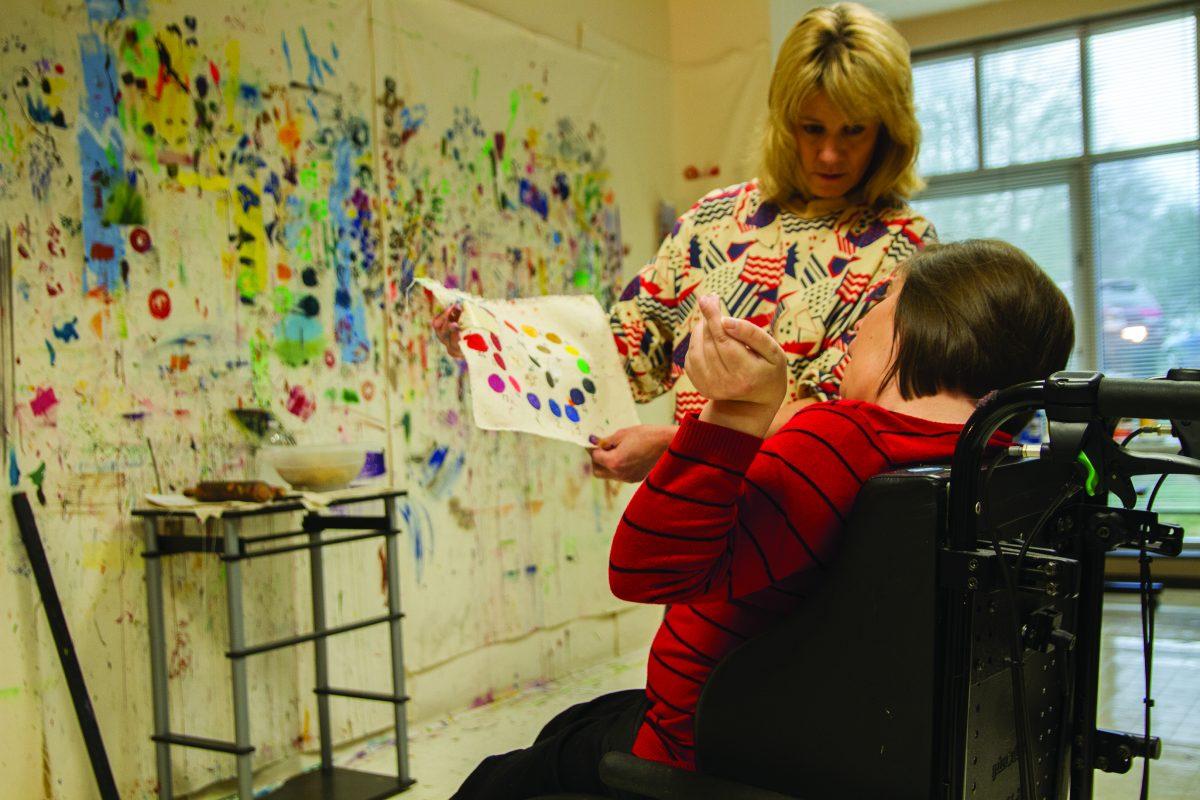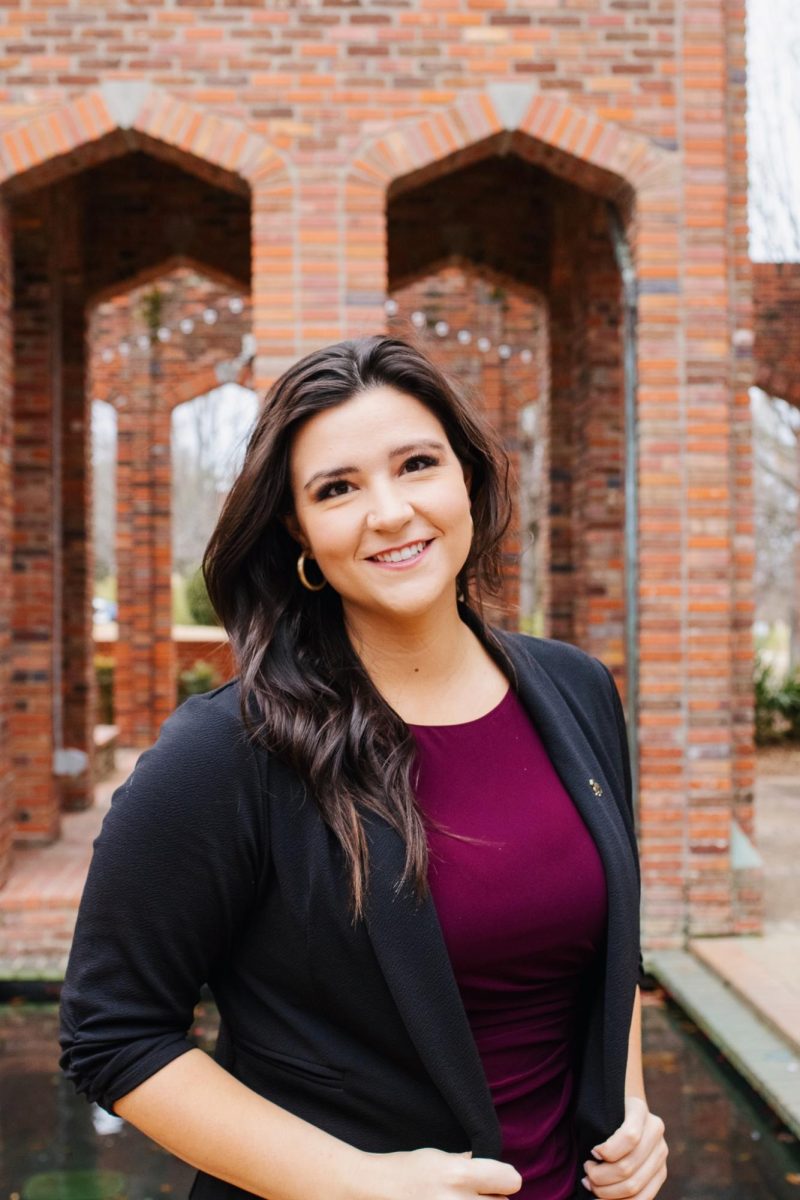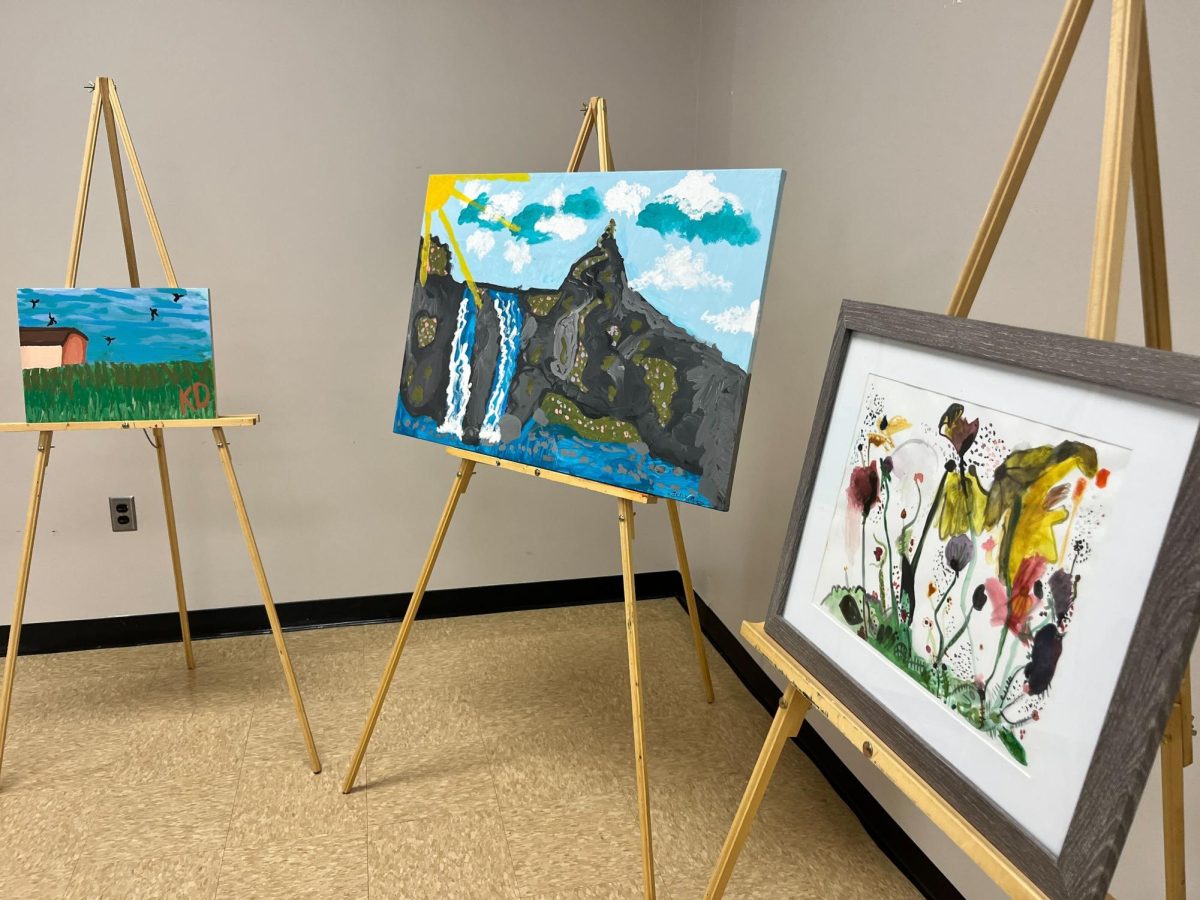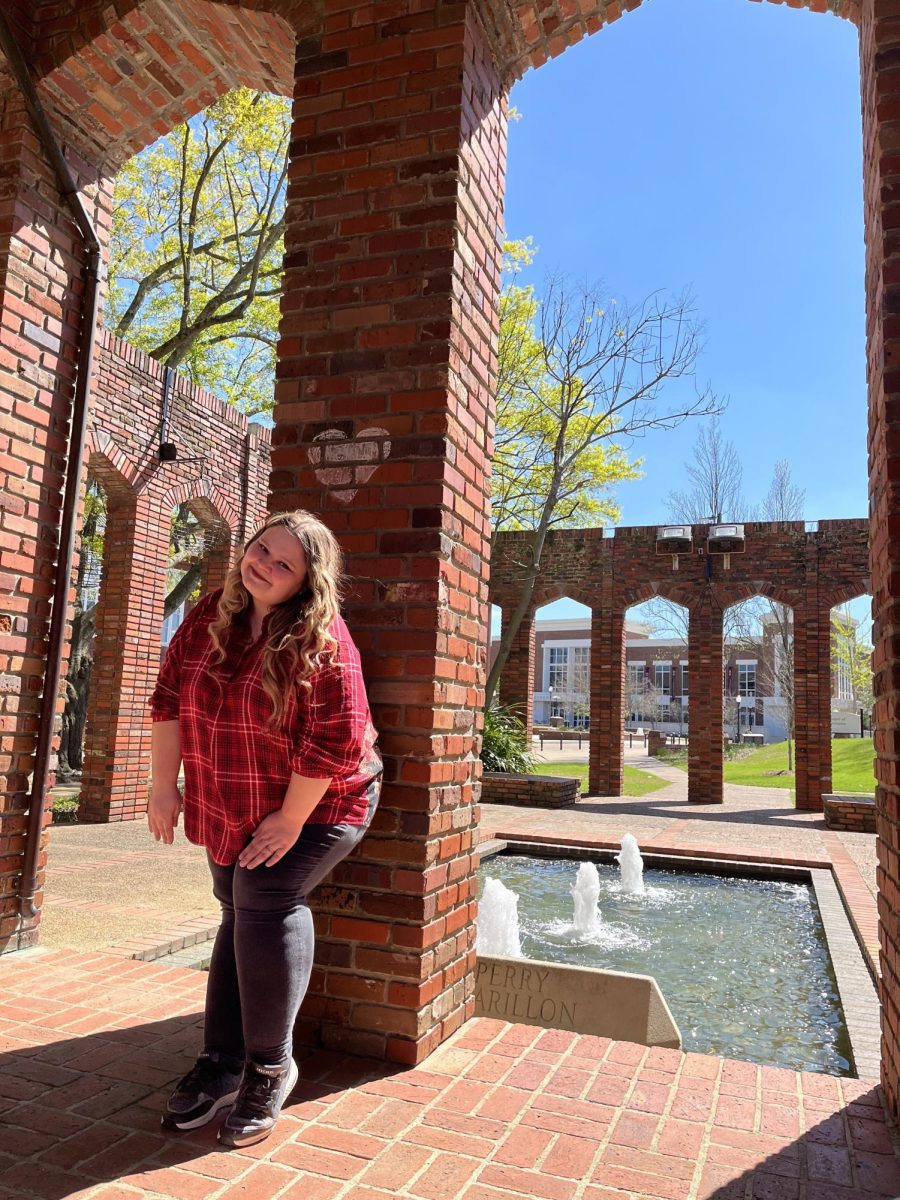A streak of blue paint flew across the room, landing on a blank canvas. As the paint splattered, a mute boy began to wiggle with delight in his wheelchair. With an occasional nod of instruction to the woman throwing paint, his masterpiece began to unfold.
“How would a person make a real painting with total control if you can’t move?” Tim Lefens, founder of Artistic Realization Technologies said in an online TED Talk.
EXPRESS Yourself at Mississippi State University uses the techniques of Artistic Realization Technologies to provide a means for Mississippians with the most severe disabilities to express themselves through art.
Trained individuals, called trackers, act as neutral arms executing the vision of the physically challenged through guided tracking and exacting technologies.
The foundation of the artistic process is accomplished through a series of yes or no questions asked by the tracker. The immobile artists direct the trackers by signaling a response through nodding, blinking their eyes or making sounds.
“The tracker leaves their ego at the door, they have no co-creation,” Lefens said. ”They make no suggestions. They’re not art teachers. They’re not therapists. They simply offer menus and manipulate tools based on exact directions from the immobile person.
According to Lefens, a tracker becomes the assistive technology allowing a disabled person to artistically express ideas in an unhindered manner.
“When [the artists] see for the first time that they could gain absolute authorship of every step of the process, they would sit up and come to life,” Lefens said.
EXPRESS Yourself professional artist Candance Stephenson said the program releases her, if only for a moment, from the physical constraints of her wheelchair.
Stephenson said her physical disability is similar to being involuntarily confined, and relying on others to release her.
“I live in a box at home. I have someone put me to bed. I have someone to give me something to drink. Here I can come outside of my box,” Stephenson said. “It frees me.”
Case manager and EXPRESS Yourself tracker, Judy Duncan, said the purpose is to give the artists control and the ability to make their own decisions.
“This levels the playing field for them,” Duncan said. “It’s an opportunity for them to be creative, they just have to use someone else’s hands to do it.”
She said everything from the size of the canvas to the tools used to paint is a result of the artist’s decision.
“We consider the participants in the program to be professional artists because they paint and sell their work,” Duncan said. “They are professional artists.”
Like many of her peers at EXPRESS Yourself, professional artist Amanda Williams is confined to a wheelchair. Unable to exhibit energy in her physical body, her eyes display distinct perception which seems to declare, “Yes, I’m here!”
Tim Lefens describes the clarity in an immobile artists’ eyes as evoking an overwhelming desire to communicate freely.
“I was shocked by what (their eyes) were apparently saying to me,” Lefens said. “Just like ‘I’m in here, can you see me?’”
According to Lefens, the paintings allow the artists to communicate freely.
“This is a way of telling people that you’re in there,” Lefens said. “We’re on a mission to create more of these islands of liberation.

























































































